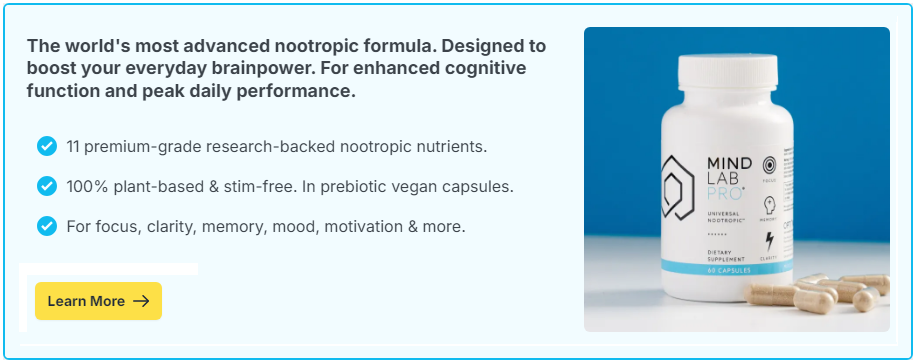
Educators wear many hats. They are instructors, mentors, counselors, administrators, and lifelong learners. From lesson planning and grading to managing student behavior and responding to administrative demands, teachers are constantly juggling multiple responsibilities. The mental load is immense, requiring sustained focus, emotional resilience, and cognitive endurance.
However, burnout is a significant issue in the education field. The long hours, high emotional demands, and ever-changing expectations can lead to mental exhaustion, decreased productivity, and even job dissatisfaction. Maintaining mental stamina is crucial for educators to continue inspiring students while preserving their own well-being.
Contents
The Cognitive Challenges Educators Face
Teaching is not just about delivering lessons—it’s a mentally demanding role that requires problem-solving, adaptability, and emotional intelligence. Educators often struggle with:
Information Overload
Teachers must process vast amounts of information daily, including lesson content, student progress reports, school policies, and administrative tasks. Keeping track of all these responsibilities can be overwhelming.
Constant Multitasking
From lecturing and answering student questions to handling classroom management and coordinating with colleagues, educators frequently switch between tasks. This mental juggling can drain cognitive resources quickly.
Emotional Labor
Beyond academic instruction, educators provide emotional support to students, mediate conflicts, and navigate difficult situations. This constant emotional investment can lead to mental fatigue.
Decision Fatigue
Teachers make hundreds of micro-decisions daily, from grading assignments to handling student behavior. Over time, this can lead to decision fatigue, making it harder to think clearly and effectively.
Long Work Hours and Limited Downtime
Many educators spend additional hours grading, preparing lessons, and managing extracurricular activities. The lack of recovery time reduces mental stamina and contributes to burnout.
How Educators Can Maintain Mental Stamina
To stay mentally sharp and energized, educators must adopt strategies that support cognitive function, stress resilience, and overall well-being.
Prioritize Sleep for Cognitive Recovery
Sleep deprivation impairs memory, decision-making, and emotional regulation. To sustain mental stamina, educators should:
- Aim for 7–9 hours of quality sleep per night.
- Maintain a consistent sleep schedule, even on weekends.
- Reduce blue light exposure from screens before bedtime to enhance melatonin production.
Use Time Management Techniques
Effective time management reduces stress and optimizes cognitive energy. Educators can benefit from:
- Time Blocking: Allocate dedicated time for grading, lesson planning, and student engagement.
- The Pomodoro Technique: Work in focused 25-minute intervals, followed by short breaks, to maintain efficiency.
- Batching Tasks: Group similar tasks together to minimize cognitive switching costs.
Optimize Nutrition for Brain Health
What educators eat directly impacts their cognitive performance. A brain-boosting diet includes:
- Omega-3 Fatty Acids: Found in fish, walnuts, and flaxseeds, these support memory and focus.
- Antioxidant-Rich Foods: Blueberries, dark chocolate, and leafy greens protect against cognitive decline.
- Complex Carbohydrates: Whole grains provide sustained energy for long teaching hours.
- Hydration: Dehydration can impair focus, so educators should drink plenty of water throughout the day.
Leverage Nootropics for Cognitive Support
Certain cognitive enhancers, known as nootropics, can help educators sustain mental clarity, reduce stress, and improve focus.
- L-Theanine + Caffeine: Enhances focus while reducing the jitteriness of caffeine.
- Bacopa Monnieri: Supports memory retention and cognitive processing.
- Rhodiola Rosea: Helps combat mental fatigue and stress resilience.
- Ginkgo Biloba: Improves blood flow to the brain, enhancing clarity and recall.
- Omega-3s: Essential for long-term cognitive function and mental stamina.
Practice Mindfulness and Stress Reduction
Managing stress effectively is crucial for sustained cognitive performance. Educators can benefit from:
- Mindfulness Meditation: Practicing 10 minutes daily reduces stress and improves focus.
- Breathing Exercises: Deep breathing techniques help regulate emotions and reduce anxiety.
- Journaling: Reflecting on daily wins and challenges enhances mental clarity.
Incorporate Physical Activity
Exercise enhances cognitive function and reduces stress. Even short bouts of movement can help:
- Walking Breaks: A 10-minute walk between classes refreshes the mind.
- Yoga and Stretching: Helps relieve tension from prolonged standing or sitting.
- Strength Training: Supports executive function and mental endurance.
Set Boundaries to Prevent Burnout
Teaching is a demanding profession, but setting boundaries can help preserve mental energy.
- Designate specific hours for work and personal time.
- Learn to say no to additional commitments that lead to overload.
- Utilize planning tools to keep track of responsibilities without feeling overwhelmed.
Enhancing Productivity Without Overworking
To stay effective without sacrificing mental stamina, educators should focus on smart productivity techniques.
Delegate and Automate Tasks
Reduce workload by using technology and teamwork:
- Use grading software to streamline assessments.
- Encourage peer collaboration among students for learning reinforcement.
- Delegate administrative tasks when possible.
Use Active Learning Techniques
Engaging students in active learning not only improves outcomes but also reduces the mental burden on educators. Techniques include:
- Group discussions to encourage peer-to-peer learning.
- Flipped classroom methods to reduce lecture fatigue.
- Gamification to make learning interactive and less mentally draining.
Cultivate a Growth Mindset
A growth mindset helps educators navigate challenges with resilience. Remind yourself that setbacks are opportunities to improve, and adaptability is key to long-term success.
Teaching is one of the most mentally demanding professions, requiring sustained focus, emotional resilience, and cognitive stamina. By prioritizing brain health through sleep, nutrition, stress management, and nootropics, educators can maintain peak performance without succumbing to burnout.
Implementing small but powerful strategies—such as mindfulness, structured time management, and cognitive-enhancing habits—helps educators stay energized, engaged, and effective. A healthy brain is the foundation of a successful and fulfilling teaching career.

